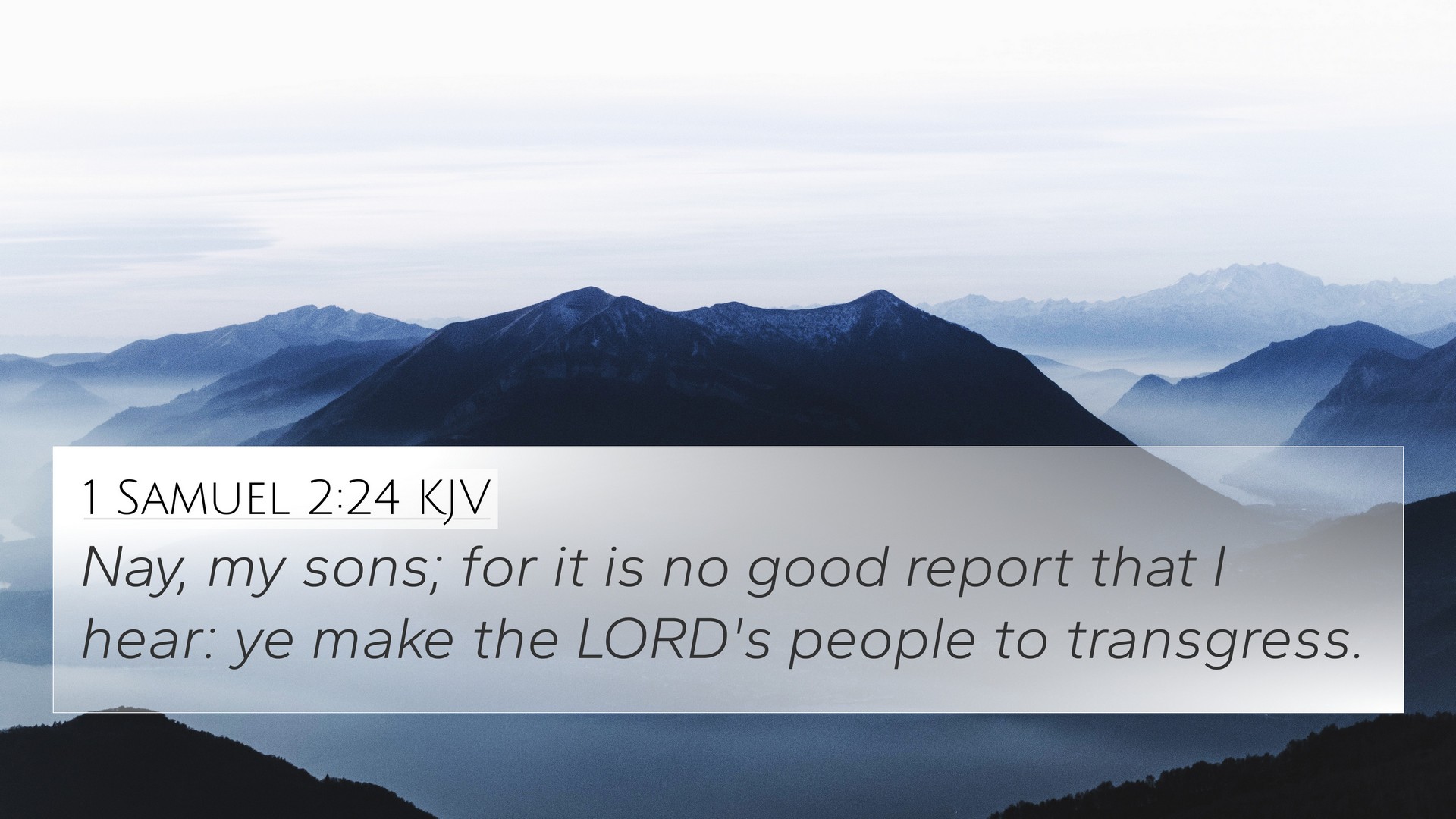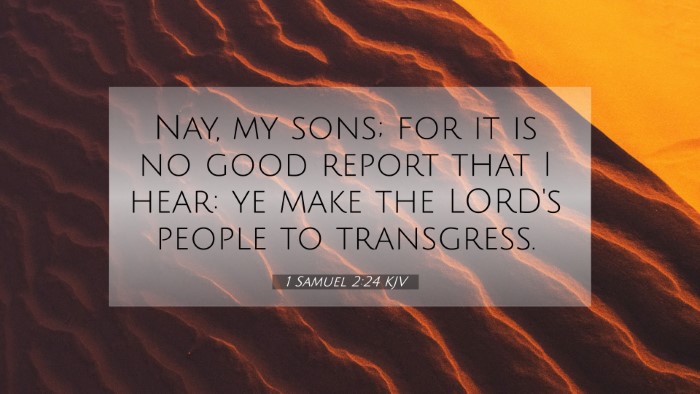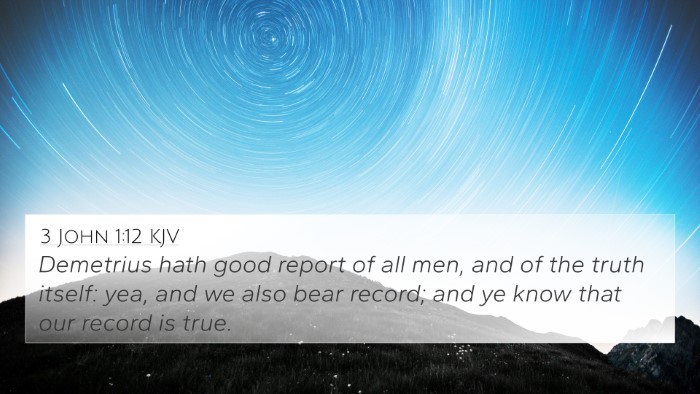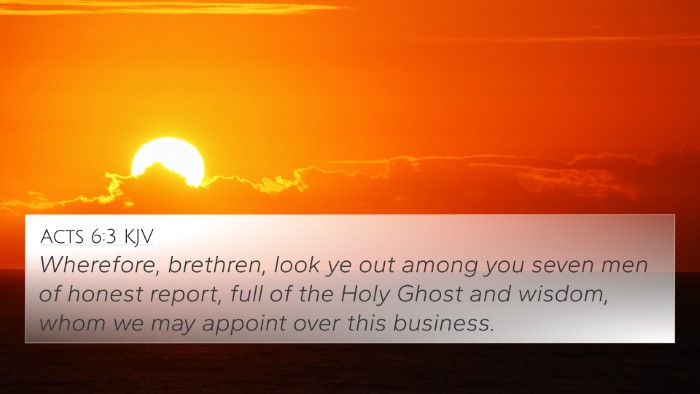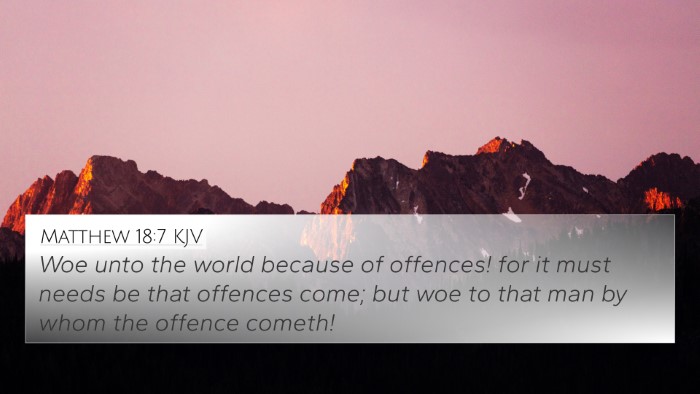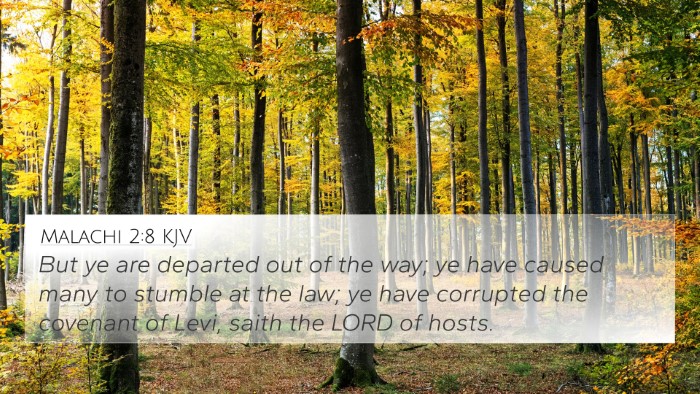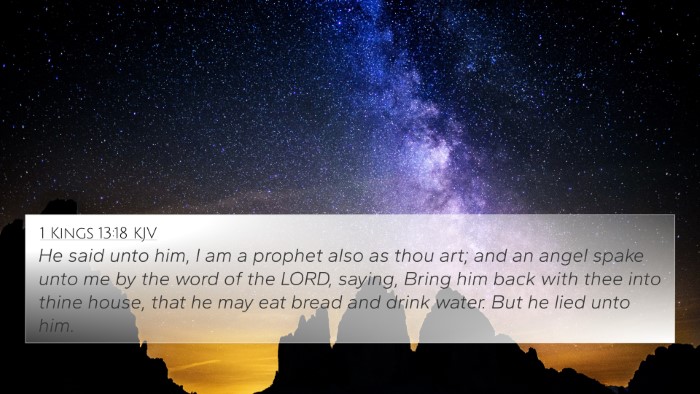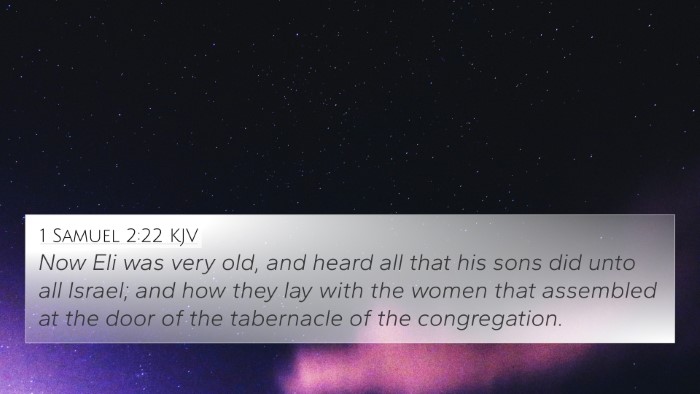Understanding 1 Samuel 2:24
Bible Verse: 1 Samuel 2:24 - "Nay, my sons; for it is no good report that I hear: ye make the Lord's people to transgress."
Summary of Meaning
The verse captures a critical moment where Eli, the high priest, addresses his sons, Hophni and Phinehas, who were corrupting the priestly office and leading the people of Israel away from proper worship. Through Eli's rebuke, the themes of accountability, divine judgment, and the sanctity of God's commandments emerge.
Commentary Insights
- Matthew Henry: Henry emphasizes the importance of parental responsibility in guiding one's children. He notes that Eli, despite his faults, attempted to correct his sons. However, their rebellion reflects a larger issue of disobedience among the people of Israel. Eli's lament illustrates the deep concern for God’s honor and the moral state of the nation.
- Albert Barnes: Barnes provides historical context and underscores the gravity of Eli's situation as high priest. He highlights that Eli’s failure to restrain his sons represents a deep-rooted corruption within the priesthood, which directly impacts the worship practices of the Israelites and their relationship with God.
- Adam Clarke: Clarke interprets the verse in light of its theological implications. He notes that the actions of Eli’s sons could provoke God’s wrath against Israel, as they trample the sacred laws. Clarke suggests this sets the stage for God’s judgment and the eventual need for a faithful leader like Samuel.
Thematic Connections and Cross-References
1 Samuel 2:24 highlights several significant biblical themes, including:
- Parental Accountability: Proverbs 22:6 - "Train up a child in the way he should go: and when he is old, he will not depart from it."
- Worship Integrity: Malachi 1:6-8 - This passage addresses the failure of the priests to offer proper sacrifices, similar to the corrupt practices of Eli's sons.
- God's Judgment: Jeremiah 7:12-14 - The consequences of leading God's people astray and the inevitability of divine retribution.
- Spiritual Corruption: Ezekiel 22:26 - "Her priests have violated my law, and have profaned mine holy things..."
- God's Call of Faithfulness: 1 Peter 5:2 - This passage speaks to the nature of pastoral responsibility, drawing a modern parallel to Eli's role as a leader.
- Consequences of Disobedience: Hebrews 10:31 - "It is a fearful thing to fall into the hands of the living God," reflecting the seriousness of straying from God.
- Vows and Worship: Numbers 30:2 - The importance of adhering to vows made before God, as compared to Eli’s sons who disregarded their promises.
- Divine Intervention: Amos 2:4-6 - A prophetic warning about the consequences of turning away from God, similar to the warning given by Eli through his rebuke.
- The Role of the Prophet: 1 Samuel 3:11-14 - The passage relates to the transition from corrupted leadership to the rise of faithful prophets in Israel.
- Faithfulness in Leadership: Luke 12:48 - "For unto whomsoever much is given, of him shall be much required," emphasizing the high duty of those in positions of spiritual authority.
Applications for Understanding
This verse serves as a critical lesson on the responsibility of leaders in spiritual contexts. It encourages believers to:
- Reflect on their influence and accountability in guiding others in faith.
- Recognize the serious nature of leading others in worship and obedience to God’s will.
- Understand the importance of addressing sin and corruption within spiritual leadership for the health of the community.
- Engage in self-reflection and correction where necessary, seeking to align oneself with God's commandments.
- Explore historical contexts and theological implications through tools for Bible cross-referencing, enhancing understanding of scriptural unity.
Conclusion
1 Samuel 2:24 is a profound reminder of the significance of integrity in spiritual leadership and the inevitable consequences of turning away from God's prescribed ways. As believers seek to understand and apply the principles of this scripture, they can utilize various bible reference resources and bible cross-reference guides to deepen their insight into the connections between scripture and God's unchanging truth.
